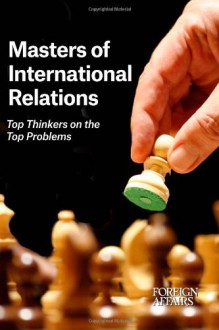It’s probably fair to say that most practitioners and general readers find little of interest or value in most contemporary academic work in the social sciences, and that most social scientists are either unconcerned by such attitudes or attribute them to the failings of the consumers, not the...
show more
It’s probably fair to say that most practitioners and general readers find little of interest or value in most contemporary academic work in the social sciences, and that most social scientists are either unconcerned by such attitudes or attribute them to the failings of the consumers, not the producers. However, we here at Foreign Affairs—responsible for running a forum for policymakers, scholars, and general readers alike—believe strongly that intellectual rigor, practical relevance, and accessible presentation are not mutually exclusive. We believe, in fact, that when done right, they are actually mutually reinforcing. In Masters of IR, we’ve decided to gather together a few of our most recent articles from some of the leading lights in international relations, showing just how the gap between scholars and policymakers can and should be bridged. The collection features Francis Fukuyama, John Ikenberry, Joseph Nye, Robert Keohane, and Fareed Zakaria on the future of history, liberalism, and America. Stephen Brooks, John Ikenberry, and William Wohlforth debate Barry Posen on U.S. grand strategy. Kenneth Waltz, Robert Jervis, and Richard Betts all chime in on Iran. Graham Allison discusses nuclear weapons, and Michael Walzer, David Campbell, and Robert Putnam talk humanitarianism and religion. Masters of IR also offers an introductory chapter by Foreign Affairs editor Gideon Rose.
show less

